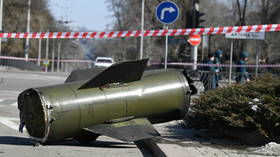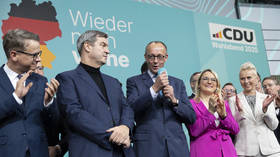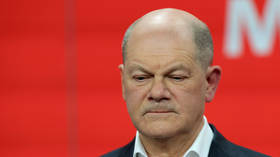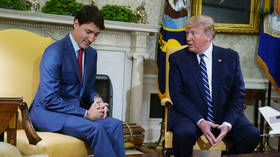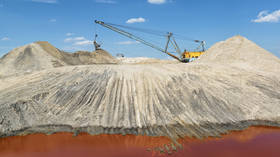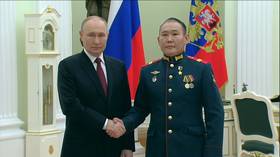Kiev asks for cluster munitions – media
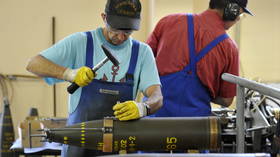
Ukrainian officials have been pressuring the US to supply controversial cluster munitions to fight Russia, Foreign Policy has reported. The Pentagon sits on a stockpile of weaponry that many other nations have banned, but is barred from exporting them by law.
“We are requesting new rounds all the time that have longer range and more explosiveness,” a Ukrainian military official was quoted by the magazine as saying on the condition of anonymity. “We need them to destroy Russian fortifications on our territory.”
The outlet reports that Kiev submitted initial requests a month ago, due to the wear and tear of its own Soviet-made artillery and a need to further switch to NATO rounds.
The report said Ukraine asked for DPICMs, or dual-purpose improved conventional munitions, which come in various NATO calibers and contain different kinds of submunitions tailored for anti-personnel and anti-armor roles – hence “dual-purpose.”
Like most other types of cluster munitions, they are controversial because their use can leave behind unexploded submunitions that pose a threat to civilians. The 2008 Convention on Cluster Munitions (CCM), which most EU members signed, bans these types of weapons, but neither Ukraine nor the US (nor Russia) are signatories.
Washington reversed its pledge not to use cluster munitions in 2017, but retains a ban on exporting them, according to Human Rights Watch (HRW).
While the Pentagon has a large number of DPICMs in its stockpile, Foreign Policy reports that Russia hawks on Capitol Hill are frustrated by Washington’s inability to send cluster rounds to Ukraine.
“These cluster munitions were literally designed specifically with Soviet advantages in artillery tubes in mind,” a congressional aide familiar with the request was quoted as saying. “The Ukrainians are saying, ‘You have these weapons purpose-built for the type of threat we’re facing — why can’t we have them’?”
There were multiple reports of Kiev’s use of Soviet cluster weapons in residential areas, both before and after Moscow sent its troops into the country. Most notably in March, when a Tochka-U missile with a cluster payload killed more than 20 people and injured dozens of others in Donetsk. Kiev denied responsibility for the attack. HRW said in May it could not verify the claims.
